Introduction
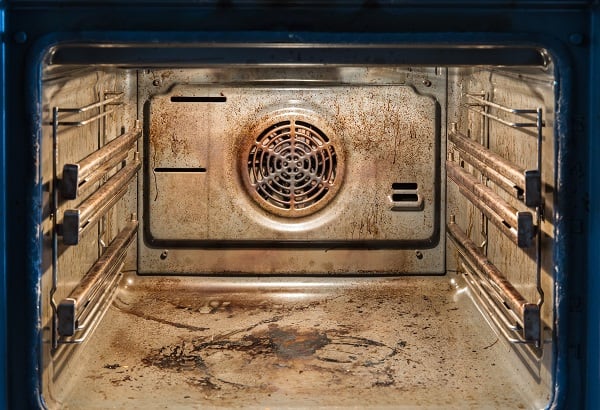
Self-cleaning ovens have become a popular choice for many households, offering convenience and efficiency in maintaining a clean oven. However, there are prevalent safety concerns and misconceptions surrounding the use of self-cleaning ovens. In this blog section, we aim to shed light on the facts and debunk common myths associated with these appliances. By providing accurate information and debunking safety concerns, we hope to provide readers with a clear understanding of the safety and effectiveness of self-cleaning ovens. Let’s dive into the details and separate fact from fiction when it comes to these innovative kitchen appliances.
What Is A Self-cleaning Oven?
A self-cleaning oven is an innovative kitchen appliance that is designed to clean itself without the need for harsh chemicals or manual scrubbing. It uses a high-temperature cleaning cycle to burn away grease, spills, and other food residue, reducing them to ash. This ash can then be easily wiped away once the cleaning cycle is complete. Self-cleaning ovens are equipped with special coatings and insulation to withstand the intense heat generated during the cleaning process. This convenient feature saves time and effort, allowing users to maintain a clean and hygienic oven with minimal manual labor.
Understanding The Purpose And Benefits Of A Self-cleaning Oven
A self-cleaning oven is designed to make the cleaning process simpler and more convenient for users. It eliminates the need for harsh chemicals and manual scrubbing, saving time and effort. The high-temperature cleaning cycle burns away grease, spills, and food residue, reducing them to ash that can be easily wiped away. This feature ensures a clean and hygienic oven with minimal effort. Self-cleaning ovens are equipped with special coatings and insulation to withstand the intense heat during the cleaning process. Overall, a self-cleaning oven provides a safe, efficient, and hassle-free way to maintain a clean and functional appliance.
How Does A Self-cleaning Oven Work?
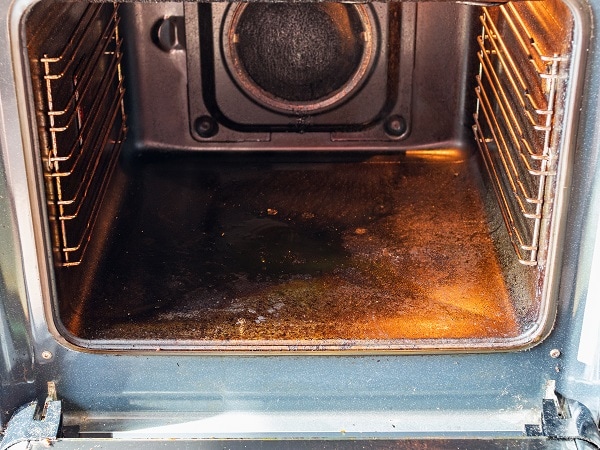
A self-cleaning oven utilizes a high-temperature cleaning cycle to burn away grease, spills, and food residue. The process typically involves heating the oven to extreme temperatures, typically around 900 degrees Fahrenheit, causing any food particles or spills to turn into ash. This intense heat helps break down the residue, and the oven’s special coatings and insulation prevent damage during the cleaning process. Once the cycle is complete, the ash can be easily wiped away, leaving a clean and hygienic oven. This efficient and hassle-free method eliminates the need for harsh chemicals and manual scrubbing.
Overview Of The Self-cleaning Process
During the self-cleaning process, a self-cleaning oven heats up to extremely high temperatures, usually around 900 degrees Fahrenheit. This intense heat causes any food residue, spills, and grease to turn into ash. The oven’s special coatings and insulation protect it from damage during the cleaning cycle. Once the cycle is complete, the ash can be easily wiped away, leaving a clean and hygienic oven. This efficient method eliminates the need for harsh chemicals and manual scrubbing, making it a convenient and time-saving solution for oven maintenance.
The Role Of High Temperatures In Self-cleaning Ovens
In self-cleaning ovens, the high temperatures play a crucial role in effectively removing food residue and grease. These high temperatures, often reaching up to 900 degrees Fahrenheit, cause the organic matter to break down and turn into ash. The intense heat also helps to kill bacteria and other pathogens, ensuring a hygienic cleaning process. The oven’s special coatings and insulation protect it from damage during the cleaning cycle. This heat-based method eliminates the need for toxic chemicals and manual scrubbing, making self-cleaning ovens a convenient and efficient option for maintaining a clean oven.
Common Safety Myths About Self-cleaning Ovens
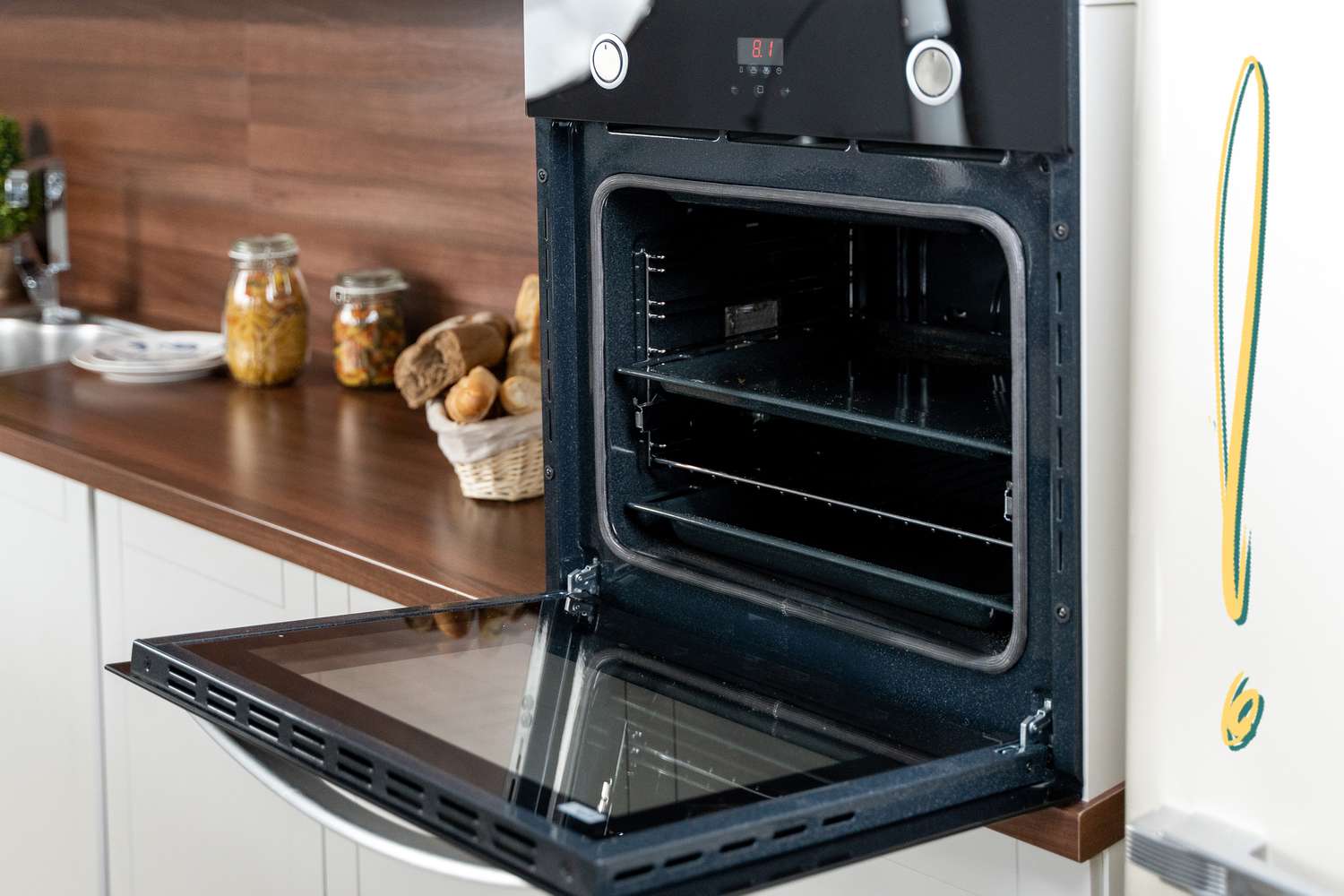
There are several common safety myths surrounding self-cleaning ovens that need to be debunked. One such myth is that self-cleaning ovens release toxic fumes that can be harmful to human health. However, self-cleaning ovens are designed to safely contain and neutralize any fumes produced during the cleaning process. Another myth is that self-cleaning ovens can cause fires. While it is true that the high temperatures during the cleaning cycle can pose a fire risk if not properly maintained, following the manufacturer’s instructions and taking necessary precautions can prevent any potential fire hazards.
Myth I: Self-cleaning Ovens Release Toxic Fumes
Contrary to popular belief, self-cleaning ovens do not release toxic fumes that can be harmful to human health. The myth that self-cleaning ovens emit toxic fumes stems from the misconception that the high temperatures used during the cleaning process will generate harmful gases. However, self-cleaning ovens are designed to safely contain and neutralize any fumes produced. The fumes generated during self-cleaning are primarily carbon dioxide and water vapor, which are harmless. It is important to follow the manufacturer’s instructions and ensure proper ventilation to minimize any potential risks.
Myth II: Self-cleaning Ovens Can Cause Fires
Another common myth surrounding self-cleaning ovens is the belief that they can cause fires. However, this is not entirely true. While it is possible for a fire to occur in a self-cleaning oven, it is extremely rare and typically only happens under specific circumstances. The high temperatures used during the self-cleaning process can cause any leftover food particles or grease to char and burn, leading to smoke or even flames. However, by following the manufacturer’s instructions, properly maintaining your oven, and ensuring that it is not overloaded or covered in flammable materials, the risk of a fire is minimal. It is crucial to take proper precautions and use common sense when using a self-cleaning oven to prevent any potential fire hazards.
Debunking Safety Myths

Debunking Safety Myths:
Contrary to popular belief, self-cleaning ovens do not release toxic fumes that can harm your health. The fumes produced during the self-cleaning process are actually non-toxic and pose no significant health risks when the oven is properly ventilated. Additionally, while there is a slight risk of fire during the self-cleaning process, it is minimal and can be mitigated by following the manufacturer’s instructions and ensuring that the oven is not overloaded or covered in flammable materials. By debunking these safety myths, it becomes clear that self-cleaning ovens are safe to use when proper precautions are taken.
Explanation Of The Non-toxic Nature Of Self-cleaning Oven Fumes
Contrary to popular belief, the fumes produced during the self-cleaning process of an oven are actually non-toxic. These fumes are a result of the high temperatures used to burn off food residue and grease. While they may have a distinct odor, they do not pose any significant health risks when the oven is properly ventilated. It is important to ensure that the kitchen is well-ventilated during the self-cleaning process by opening windows or using exhaust fans. This debunking of the myth helps reassure users that self-cleaning ovens are safe to use.
Safety Measures To Prevent Fires During The Cleaning Process
During the self-cleaning process of an oven, there are a few safety measures that should be taken to prevent fires. It is important to remove any grease or food residue from the oven before starting the cleaning cycle. This can be done by wiping down the oven with a damp cloth. Additionally, it is crucial to remove any flammable items from the vicinity of the oven, such as paper towels or plastic utensils. It is also recommended to closely monitor the oven during the cleaning cycle to ensure that there are no signs of smoke or excessive heat. By following these safety measures, the risk of fires during the self-cleaning process can be minimized.
Tips For Using A Self-cleaning Oven Safely
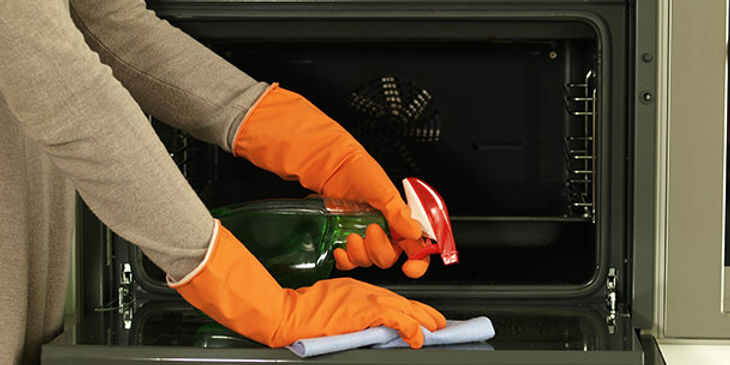
When using a self-cleaning oven, it is important to follow these tips to ensure your safety:
- Read the manufacturer’s instructions: Familiarize yourself with the specific guidelines for your oven model before starting the self-cleaning process.
- Remove flammable items: Take out any paper towels, plastic utensils, or other flammable objects from the oven and its surroundings.
- Ventilate the area: Open windows or turn on exhaust fans to ensure proper ventilation during the cleaning process.
- Monitor the oven: Stay near the oven while it is self-cleaning to keep an eye out for any signs of smoke or excessive heat.
- Use caution when opening the oven: Allow the oven to cool down completely before opening it after the self-cleaning cycle is finished.
Following these tips will help you safely and effectively utilize the self-cleaning feature of your oven.
Precautions To Take Before Starting The Self-cleaning Cycle
Before starting the self-cleaning cycle in your oven, it is important to take certain precautions to ensure your safety. Here are some tips to keep in mind:
- Read the manufacturer’s instructions: Familiarize yourself with the specific guidelines for your oven model before starting the self-cleaning process.
- Remove flammable items: Take out any paper towels, plastic utensils, or other flammable objects from the oven and its surroundings.
- Ventilate the area: Open windows or turn on exhaust fans to ensure proper ventilation during the cleaning process.
- Monitor the oven: Stay near the oven while it is self-cleaning to keep an eye out for any signs of smoke or excessive heat.
- Use caution when opening the oven: Allow the oven to cool down completely before opening it after the self-cleaning cycle is finished.
By following these precautions, you can safely and effectively use the self-cleaning feature of your oven.
Maintenance Tips To Ensure Safe And Proper Functioning Of The Oven
Regular maintenance is crucial for ensuring the safe and proper functioning of your self-cleaning oven. Here are some maintenance tips to keep in mind:
- Clean spills promptly: Wipe up any spills or food debris as soon as they occur to prevent them from accumulating and potentially causing problems during the self-cleaning process.
- Regularly clean the oven racks: Remove the oven racks and clean them separately using warm soapy water or oven cleaner. This helps to prevent grease buildup and ensures even heat distribution.
- Check the door gasket: Inspect the door gasket regularly for any signs of damage or wear. Replace it if necessary to maintain a tight seal and prevent heat escape during the self-cleaning cycle.
- Clean the oven exterior: Wipe down the exterior of the oven regularly to remove dust and debris. Pay attention to the control panel and knobs, ensuring they are clean and free from any blockages.
By following these maintenance tips, you can help prolong the lifespan of your oven and ensure its safe and efficient operation.
Conclusion
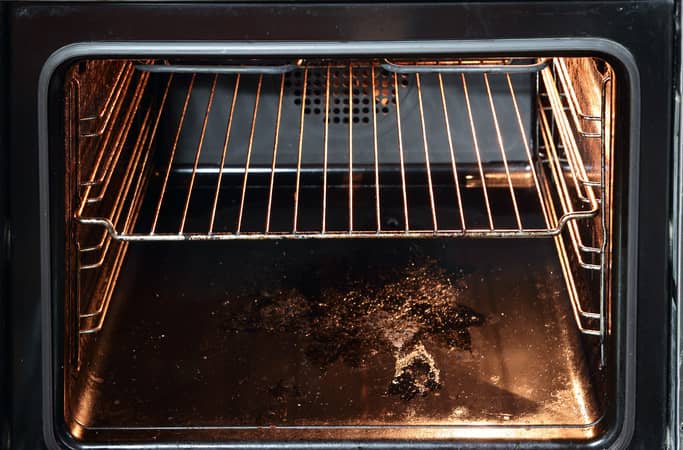
In conclusion, self-cleaning ovens are safe and effective appliances for maintaining a clean and hygienic kitchen environment. The common safety myths surrounding self-cleaning ovens, such as the release of toxic fumes and the risk of fires, have been debunked. It is important to understand that self-cleaning oven fumes are non-toxic, and proper safety measures can be taken to prevent fires during the cleaning process. By following the recommended precautions and maintenance tips, users can enjoy the convenience and peace of mind that self-cleaning ovens provide.
The Safety And Convenience Of Self-cleaning Ovens
Self-cleaning ovens offer both safety and convenience to users. With the debunking of safety myths, it is clear that self-cleaning oven fumes are non-toxic and pose no harm to humans or pets. The high temperatures used during the self-cleaning process effectively eliminate grime and grease, ensuring a clean and hygienic oven. Additionally, the self-cleaning feature saves time and effort by eliminating the need for manual scrubbing. Users can enjoy a hassle-free cleaning experience while maintaining a safe and tidy kitchen environment.
Final Thoughts And Recommendations
In conclusion, self-cleaning ovens are not only convenient but also safe when used properly. The debunking of safety myths surrounding self-cleaning ovens emphasizes the non-toxic nature of the fumes produced and dispels fears of potential fires. To ensure safe usage, it is essential to follow the manufacturer’s instructions, maintain proper ventilation, and take necessary precautions before starting the self-cleaning cycle. Regular maintenance and cleaning of the oven will also contribute to its safe and efficient operation. With these guidelines in mind, users can confidently utilize the self-cleaning feature and enjoy a clean and safe kitchen environment.
Frequently Asked Questions about Self-Cleaning Ovens and Safety
Q: Can a self-cleaning oven kill you?
A: While self-cleaning ovens are generally safe to use, it’s important to understand safety precautions and follow guidelines set by the manufacturer. Misuse or failure to adhere to safety measures can pose potential risks to your health and safety.
Q: How do self-cleaning ovens work?
A: Self-cleaning ovens have a cleaning cycle that heats the oven to extremely high temperatures (typically between 800-900 degrees Fahrenheit or 427-482 degrees Celsius) for a predetermined period. This high heat helps to burn off and incinerate food residue and spills inside the oven, reducing them to ash.
Q: Are self-cleaning oven fumes dangerous?
A: Self-cleaning ovens produce fumes during the cleaning cycle, and these fumes can be potentially harmful if inhaled in large quantities or for prolonged periods. The fumes are caused by the decomposition of food particles and greases. However, if used correctly and in a well-ventilated area, the levels of fumes are generally within safe limits.
Q: Do self-cleaning ovens release carbon monoxide?
A: Self-cleaning ovens do not produce carbon monoxide (CO) during the cleaning cycle. However, they may release small amounts of other potentially harmful gases and materials, including volatile organic compounds (VOCs). It is always recommended to open windows or turn on exhaust fans during the cleaning process to ensure proper ventilation.
Q: Can I be in the same room while my self-cleaning oven is running?
A: It is generally safe to be in the same room while your self-cleaning oven is running, as long as the area is well-ventilated. However, it is always advisable to consult your oven’s manufacturer guidelines and follow their recommendations regarding occupancy during the cleaning cycle. Some manufacturers recommend staying out of the kitchen altogether during this process.
Q: Do I need to remove racks and pans before running the self-cleaning cycle?
A: Yes, it is crucial to remove all racks, pans, and other items from the oven before initiating the self-cleaning cycle. The extreme heat produced during the cleaning process can damage or discolor these items. Additionally, food residue on the racks and pans can generate more intense fumes, potentially compromising the oven’s operation.
Q: Can a self-cleaning oven catch fire?
A: Self-cleaning ovens are designed to withstand the high temperatures required for the cleaning cycle. However, under certain circumstances, such as leaving flammable materials inside or using incorrect cleaning products, a fire may occur. It is essential to follow the manufacturer’s instructions, remove any flammable items, and use only approved cleaning solutions to minimize the risk of fire.
Q: Are self-cleaning ovens safe for homes with children or pets?
A: Self-cleaning ovens are generally safe for homes with children or pets if the necessary safety precautions are followed. It is crucial to keep children and pets away from the oven during the cleaning cycle due to the high temperatures and potentially harmful fumes. Ensuring proper supervision and maintaining a safe distance can help prevent accidents or injuries.
Q: Can I manually clean my self-cleaning oven instead?
A: While self-cleaning ovens offer convenience and efficiency, you can still choose to manually clean them if you prefer. Always refer to your oven’s user manual for specific cleaning instructions. Take the necessary precautions, such as wearing protective gloves and using suitable cleaning agents, when manually cleaning your oven to ensure safety and avoid any risks.
Q: Are there any alternatives to self-cleaning ovens?
A: Yes, there are alternatives to self-cleaning ovens, such as using natural cleaning methods or utilizing removable oven liners or mats to help catch spills and make cleaning easier. These options can be useful for individuals who prefer not to use the self-cleaning feature or want to reduce exposure to potentially harmful fumes.

Kemah Cafe is a family-owned eatery that takes pride in offering a delightful array of Vietnamese, Chinese, and Thai dishes. Located at the heart of the community, Kemah Cafe has been serving up delicious Pho and other authentic Asian cuisine for many years. Founded with a passion for sharing the flavors of the East, Kemah Cafe has become a beloved culinary destination for locals and visitors alike. The warm and welcoming atmosphere of the cafe, combined with the tantalizing aromas of freshly prepared dishes, creates an unforgettable dining experience.